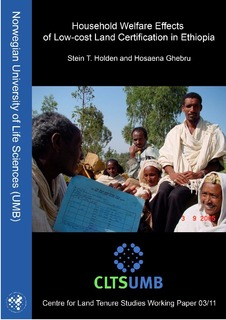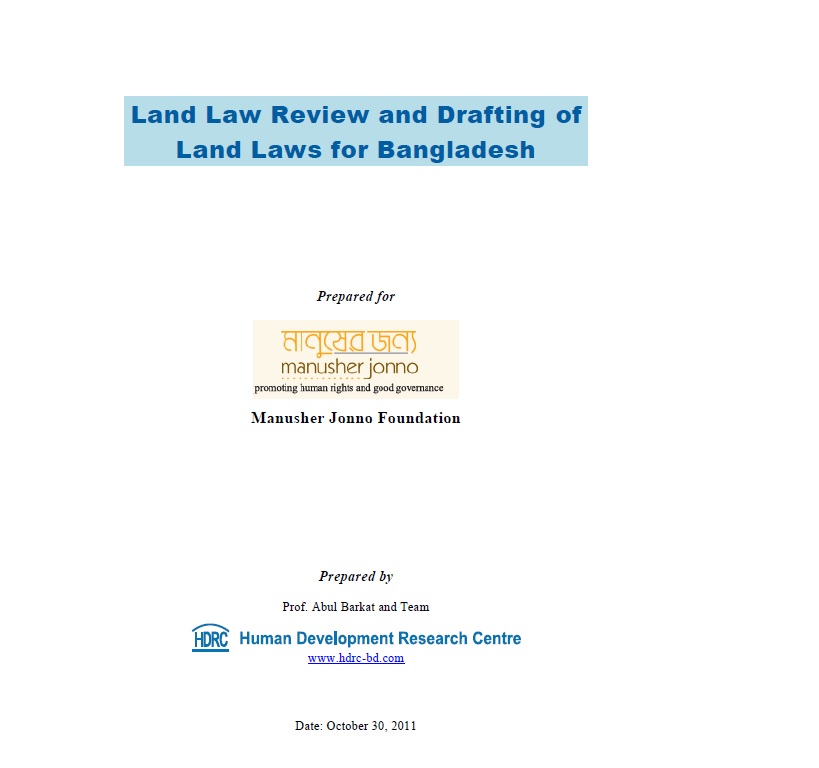Home is more than a roof over your head Roma denied adequate housing in Serbia
Land, livelihoods and identities inter-community conflicts in East Africa
Pathways to Real Access to Land-Related Resources for Women: Challenging and Overturning Dominant Legal Paradigms
Women’s Access to Land: An Asian Perspective
ABSTRACTED FROM INTRODUCTION: Women’s access to and control over land can potentially lead to gender equality alongside addressing material deprivation. Land is not just a productive asset and a source of material wealth, but equally a source of security, status and recognition. Substantive gender equality is both relational and multi-dimensional, cutting across race, class, caste, age, educational and locational hierarchies and can only be achieved if rights are seen as socially legitimate.
Household welfare effects of low-cost land certification in Ethiopia
Several studies have shown that the land registration and certification reform in Ethiopia has been implemented at an impressive speed, at a low-cost, and with significant impacts on investment, land productivity, and land rental market activity. This study provides new evidence on land productivity changes for rented land and on the welfare effects of the reform. The study draws on a unique household panel, covering the period up to eight years after the implementation of the reform.
Local solutions gain ground in East Africa
In Uganda, Tanzania, and Kenya, a decentralized approach to land administration promises more accessible dispute resolution and a better deal for women. Among the challenges however, are old social attitudes that pre-empt discussion about women’s right to control land. In Lira district, for example, in-laws and land-grabbers routinely chase widows off land. A “viciously vibrant land market” often means that women are swindled in Bugunda district.
Highlands and Drylands : Mountains, a source of resilience in arid regions
Dryland mountains are among the least-known environments in the world, and certainly one of the most overlooked by decision- and policy-makers. Dryland mountains have an outstanding strategic value. They act as water towers for surrounding dry lowland areas, as shown by the examples of the Rocky Mountains of North America, the Central Andes, the mountains of the Mediterranean Basin, the Sahara and Sub-Saharan Africa, West Asia, and Central Asia
Enhancing Legal Empowerment and Customary Law in Rwanda: Report of a Pilot Project concerning Community-level Dispute Resolution and Women’s Land Rights
We present a report on the results of a 10-month pilot project conducted in North- Western Rwanda that aimed to explore fruitful ways to engage with customary law in order to empower rural communities and rural women in particular. The focus is on the effectiveness of land dispute resolution at the community level and the respect for women’s formally guaranteed land rights by the institutions involved.
The Politics of Investment in Large Scale Agricultural Ventures: Case of Mpanda Rukwa Tanzania
Tanzania has always been a country in the spotlight over cases of land grabbing for various uses. Over the recent past there has been a lot of information in both print and electronic media of land being taken for various investment purposes. Little is known to the public of the deals the government is entering with these foreign investment companies that are eyeing Tanzania as a destination in agricultural investment. Investment in agricultural land has been a key driving force in Tanzania as a rush now has intensified in which agricultural land is being taken for various uses.
Land Law Review and Drafting of Land Laws for Bangladesh
The complexity and magnitude of issues pertaining to land administration and management in Bangladesh cannot be overstated. The nature and volume of land disputes in the nation indicate the inefficiency of the land administration system and land dispute resolution mechanisms. Especially multiple claims to the same property-fuelled by the uncoordinated land recording systems-are widespread. land grabbing presents huge legal and governance related challenges.









